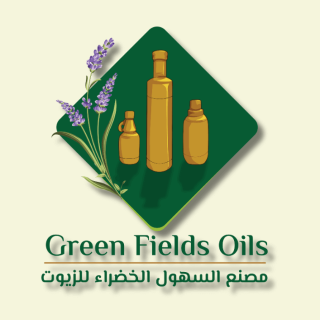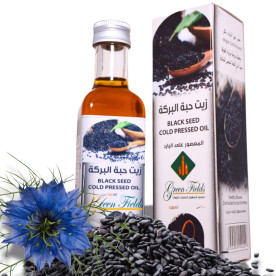Green Fields Oils partners with AmanGrow's innovative iAVS (Integrated Aqua-Vegeculture Systems) to revolutionize essential oil production through sustainable aquaponic herb farming in Jordan.
What is Aquaponic Herb Farming?
Aquaponic farming represents a revolutionary approach to agriculture that combines aquaculture (fish farming) with hydroponics (soilless plant cultivation). In this closed-loop system, fish waste provides natural nutrients for plants, while plants filter and clean the water for fish—creating a perfectly balanced ecosystem.
At Green Fields Oils, we've partnered with AmanGrow, Jordan's leading sustainable agriculture innovator, to test this cutting-edge technology for essential oil herb production. AmanGrow's iAVS (Integrated Aqua-Vegeculture Systems) has been transforming food production across Jordan for over 8 years, and now we're applying their expertise to essential oil herbs.
Key Principles of Aquaponic Systems:
- Symbiotic relationship: Fish and plants support each other's growth
- Water efficiency: Up to 90% less water usage compared to traditional farming
- No soil contamination: Eliminates soil-borne diseases and pesticide residues
- Year-round production: Climate-controlled environment ensures consistent harvests
- Chemical-free: Natural fish waste replaces synthetic fertilizers
Traditional vs Aquaponic: Essential Oil Quality Comparison
After extensive testing at the Um Al Dananeer facility in partnership with AmanGrow, we've documented significant advantages of aquaponic-grown herbs for essential oil production:
Nutrient Density Advantages
Aquaponic herbs consistently show:
- Higher essential oil concentration: 15-25% increase in oil content per gram of plant material
- Enhanced terpene profiles: More complex aromatic compounds due to optimal nutrient uptake
- Consistent potency: Controlled environment eliminates seasonal variations in oil quality
- Faster maturation: Herbs reach optimal harvesting stage 20-30% faster than soil-grown equivalents
Contamination Risk Elimination
Traditional farming challenges:
- Soil-borne pathogens and heavy metals
- Pesticide and herbicide residues
- Inconsistent water quality
- Weather-dependent quality variations
Aquaponic advantages:
- Zero soil contamination risk
- No chemical inputs required
- Controlled water quality with continuous monitoring
- Protected environment eliminates weather-related stress
Green Fields' AmanGrow Partnership: Innovation in Action
Our collaboration with AmanGrow represents a groundbreaking approach to essential oil production. Located at our Um Al Dananeer testing facility, this partnership combines Green Fields' 20+ years of essential oil expertise with AmanGrow's proven Modular Food Production Systems (MFPS).
Herbs Successfully Tested:
- Lemongrass: 22% higher essential oil yield with enhanced citral content
- Mint: Superior menthol concentration and consistent flavor profile
- Basil: Increased eugenol levels and extended shelf life
- Rosemary: Enhanced antioxidant properties and aromatic intensity
Quality Results That Exceed Expectations
Our ISO22000:2018 certified testing protocols have confirmed remarkable improvements:
- Purity levels:8% pure essential oils (vs. 97-98% from traditional farming)
- Consistency: Less than 2% variation in oil composition between harvests
- Shelf stability: 40% longer shelf life due to reduced oxidation
- Certification compliance: Meets all ISO22000, HACCP, and Halal standards
Sustainability Impact: Leading by Example
The environmental benefits align perfectly with Jordan's water conservation priorities:
- Water savings: 90% reduction in water usage compared to traditional irrigation
- Land efficiency: 10x higher yield per square meter
- Energy optimization: AmanGrow's systems designed for minimal energy consumption
- Waste elimination: Closed-loop system produces zero agricultural waste
Environmental Benefits: Sustainable Essential Oil Production
Water Conservation in Jordan's Climate
Jordan faces significant water scarcity challenges, making aquaponic systems particularly valuable:
- Traditional herb farming: Requires 400-600 liters per kg of fresh herbs
- Aquaponic systems: Use only 40-60 liters per kg of fresh herbs
- Water recycling: 95% of water is continuously recycled within the system
- No groundwater depletion: Reduces pressure on Jordan's limited aquifer resources
Chemical Input Reduction
Aquaponic systems eliminate the need for:
- Synthetic fertilizers (replaced by natural fish waste)
- Pesticides and herbicides (controlled environment prevents pest issues)
- Soil conditioners and amendments
- Growth hormones or artificial enhancers
Year-Round Production Capability
Unlike traditional farming limited by seasons, aquaponic systems provide:
- Continuous harvests: 6-8 harvests per year vs. 2-3 traditional harvests
- Climate independence: Consistent production regardless of weather
- Supply chain stability: Reliable essential oil supply for international exports
- Quality consistency: Eliminates seasonal variations in oil composition
The Future of Essential Oil Production
Scalability Potential
AmanGrow's modular systems offer unprecedented scalability:
- Modular design: Systems can be expanded incrementally based on demand
- Space efficiency: Vertical growing systems maximize production per square meter
- Investment flexibility: Start small and scale up as markets develop
- Technology integration: Smart monitoring systems optimize growing conditions automatically
Integration with Traditional Methods
Rather than replacing traditional farming entirely, aquaponics complements existing operations:
- Premium product lines: Aquaponic herbs for high-value essential oils
- Seasonal supplementation: Fill gaps when traditional crops are unavailable
- Research and development: Test new herb varieties in controlled conditions
- Export market advantages: Meet stringent international quality standards
Quality Advantages for Consumers
End consumers benefit from aquaponic essential oils through:
- Higher potency: More concentrated active compounds
- Cleaner profiles: No pesticide or heavy metal contamination
- Consistent quality: Reliable therapeutic properties
- Sustainable sourcing: Environmentally responsible production methods
Green Fields' Innovation Leadership
Pioneering Sustainable Essential Oil Production
As Jordan's leading female-owned essential oil manufacturer, Green Fields Oils continues to break new ground:
- First in Jordan: First essential oil company to implement aquaponic herb production
- Research leadership: Documenting best practices for industry adoption
- Export innovation: Meeting growing international demand for sustainable products
- Technology integration: Combining traditional expertise with cutting-edge methods
Certification Excellence
Our aquaponic essential oils maintain all existing certifications:
- ISO22000:2018: Food safety management systems
- HACCP: Hazard Analysis and Critical Control Points
- Halal: Islamic compliance for global Muslim markets
Market Positioning
This innovation positions Green Fields Oils as:
- Sustainability leader: First mover in aquaponic essential oil production
- Quality innovator: Higher purity and potency than conventional products
- Export pioneer: Meeting next-generation international standards
- Technology adopter: Embracing 21st-century agricultural methods
Looking Ahead: The Next Phase
Expansion Plans
Based on successful testing results, Green Fields Oils is planning:
- Production scaling: Expanding aquaponic capacity to meet growing demand
- Herb variety expansion: Testing additional herbs for essential oil production
- Export market development: Targeting premium markets in USA, UK, and UAE
- Partnership growth: Deepening collaboration with AmanGrow for system optimization
Industry Impact
Our aquaponic initiative is creating ripple effects throughout Jordan's agricultural sector:
- Knowledge sharing: Training other producers in sustainable methods
- Supply chain development: Creating new opportunities for local farmers
- Export competitiveness: Enhancing Jordan's reputation for quality essential oils
- Environmental leadership: Demonstrating viable water conservation solutions
Conclusion: Cultivating the Future Today
The partnership between Green Fields Oils and AmanGrow represents more than just a technological advancement—it's a glimpse into the future of sustainable essential oil production. By combining our 20+ years of essential oil expertise with AmanGrow's innovative aquaponic systems, we're not just meeting today's quality standards; we're setting tomorrow's.
As water becomes increasingly scarce and consumers demand cleaner, more sustainable products, aquaponic essential oil production offers a solution that benefits everyone: farmers, consumers, and the environment. Our success with lemongrass, mint, basil, and rosemary is just the beginning.
The future of essential oils is growing in water, not soil—and that future is happening now in Jordan.
Ready to experience the difference? Explore our aquaponic-grown essential oils and taste the future of sustainable agriculture. Contact Green Fields Oils to learn more about our innovative partnership with AmanGrow and how we're revolutionizing essential oil production one herb at a time.
About Green Fields Oils: Founded in 2004, Green Fields Oils is Jordan's leading female-owned manufacturer of cold-pressed oils and essential oils, exporting to 10+ countries with ISO22000, HACCP, and Halal certifications.
About AmanGrow: Founded 8 years ago, AmanGrow is Jordan's pioneer in sustainable agriculture through innovative Modular Food Production Systems (MFPS), helping communities achieve food security while conserving resources.
















